In my last post I showed you a couple more places in San Salvador that are accepting Bitcoin as payment. In this post, I want to share with you a few more locations across the city that accept Bitcoin, and some of the challenges that come along with it.
Starbucks #1
The first stop is at a Starbucks in Galeries, a shopping center in the north of the city. You will notice waiting in line that one of their registers is clearly marked to accept Bitcoin.
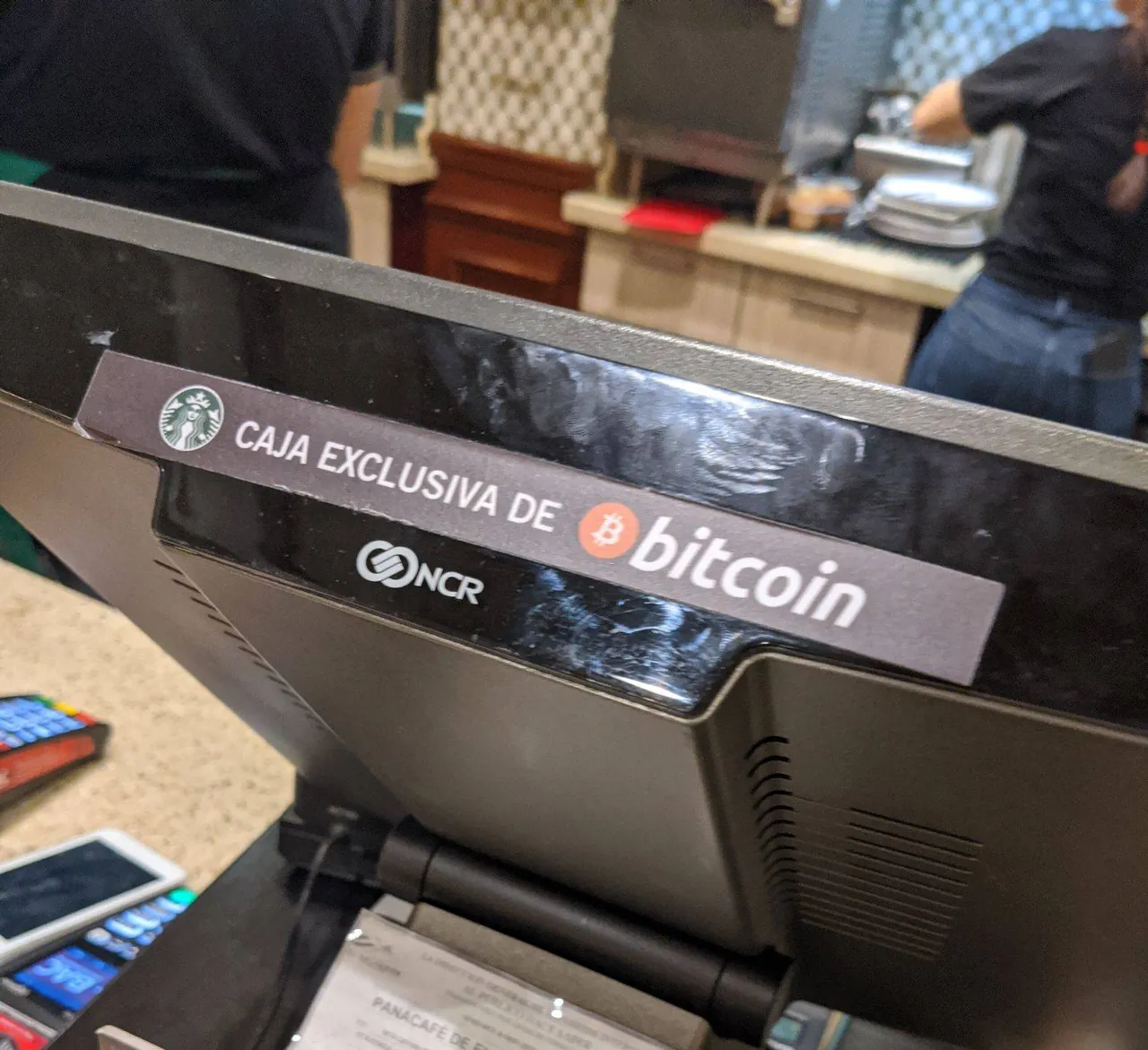
When I asked to pay with Bitcoin, the barista picked up the phone, opened the wallet app, punched in the amount, and showed me a lightning QR code. The payment went through in a matter of seconds.
Buffalo Wings
The second stop is Buffalo Wings in La Gran Via, another shopping complex in the south of the city.
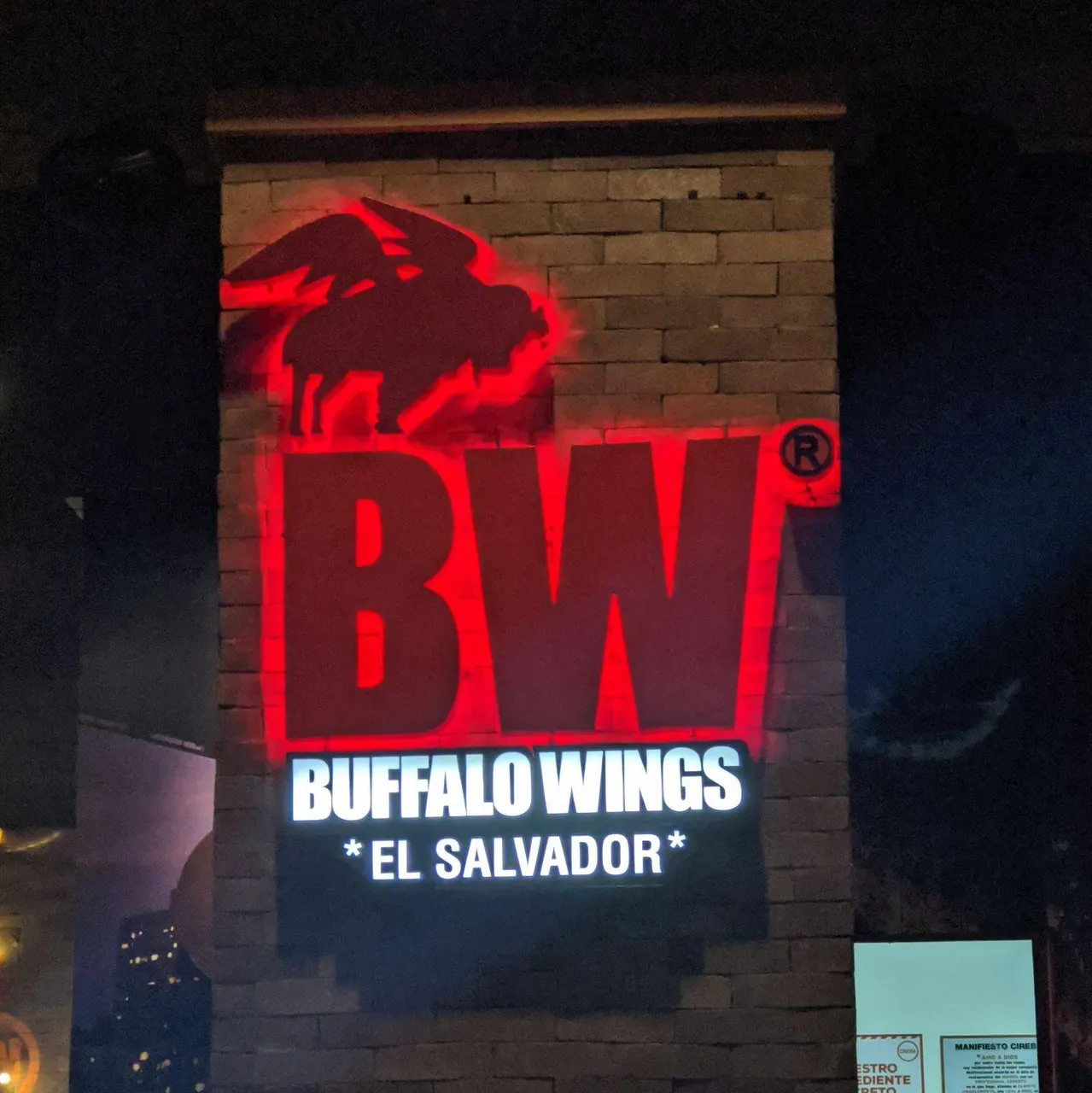
When I asked to pay with Bitcoin, the waiter had to check with a co-worker and then returned to say that yes, it was possible, if I would just make my way to the cash register.
The co-worker who knew how the system worked showed our waiter how to accept a Bitcoin payment via their smartphone app (non-Chivo). They presented us with a lightning QR code, and after scanning it the payment went through in a few seconds.
Starbucks #2
The next location is a Starbucks in La Gran Via, where they also had a register marked to accept Bitcoin.
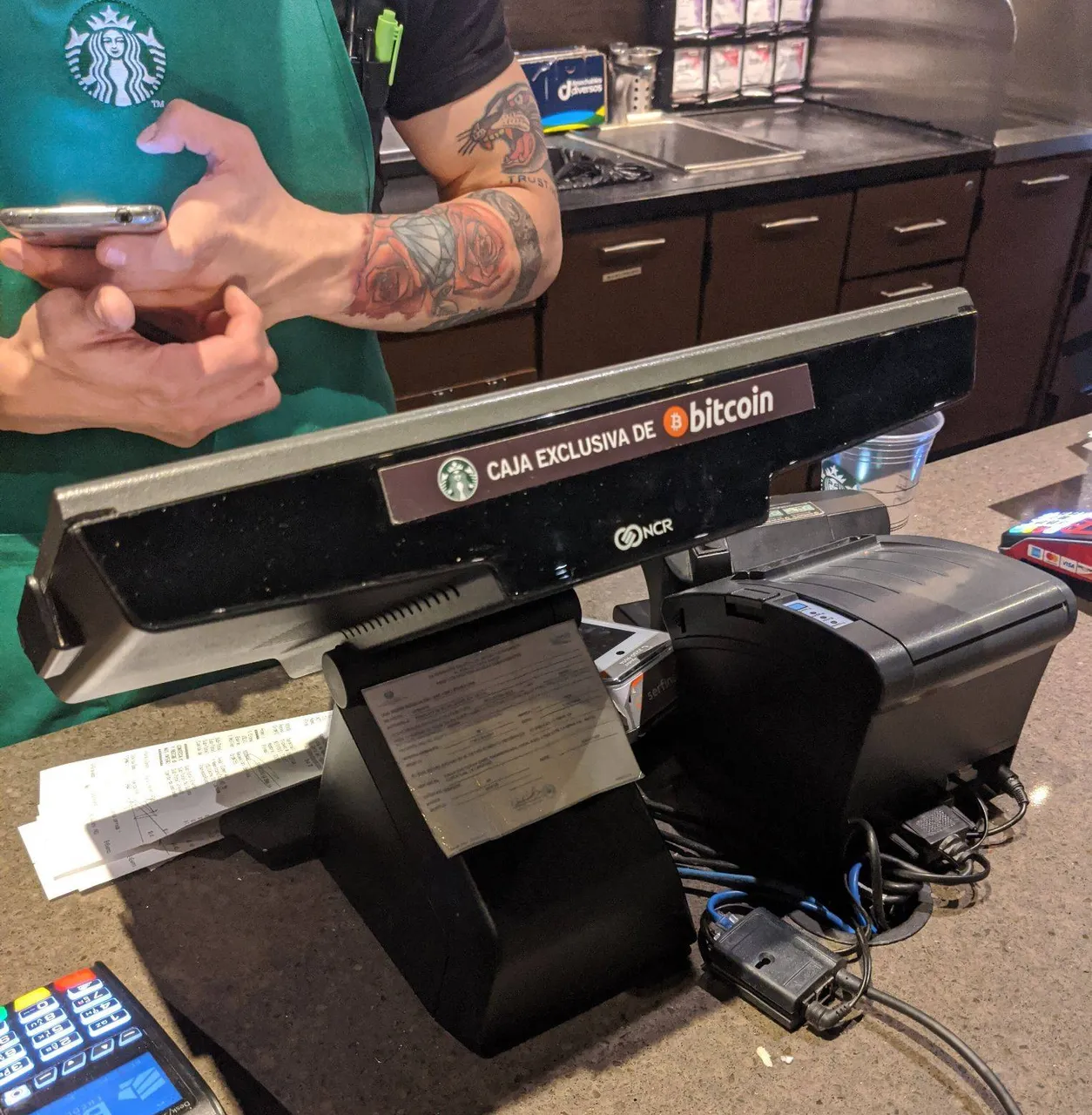
Upon requesting to pay with Bitcoin, the barista showed me a Chivo QR code for a digital USD payment. I told him that I wanted to pay with Bitcoin, not digital USD, and he managed to generate a Bitcoin QR code.
However, it was a QR code for an on-chain Bitcoin transaction, instead of lightning. I asked if he could select the lightning payment option, but he said they weren't allowed to do so.
This was despite the fact that a few months prior I had paid with lightning at this exact same location.
It would seem that either their Bitcoin payment policy has changed, or this employee has received different instructions, possibly from a different supervisor.
Due to previous bad experiences trying to make on-chain payments to the Chivo wallet, I didn't want to get stuck waiting for a Bitcoin confirmation, so I ended up paying him with cash instead.
Super Selectos
In my previous post I mentioned that the last time I went shopping, there were some delays at the Super Selectos register that accepts Bitcoin.
However, this time around, I was able to go shopping later in the day when there were fewer people, and I was the last one in line to pay at the single till that accepts Bitcoin.
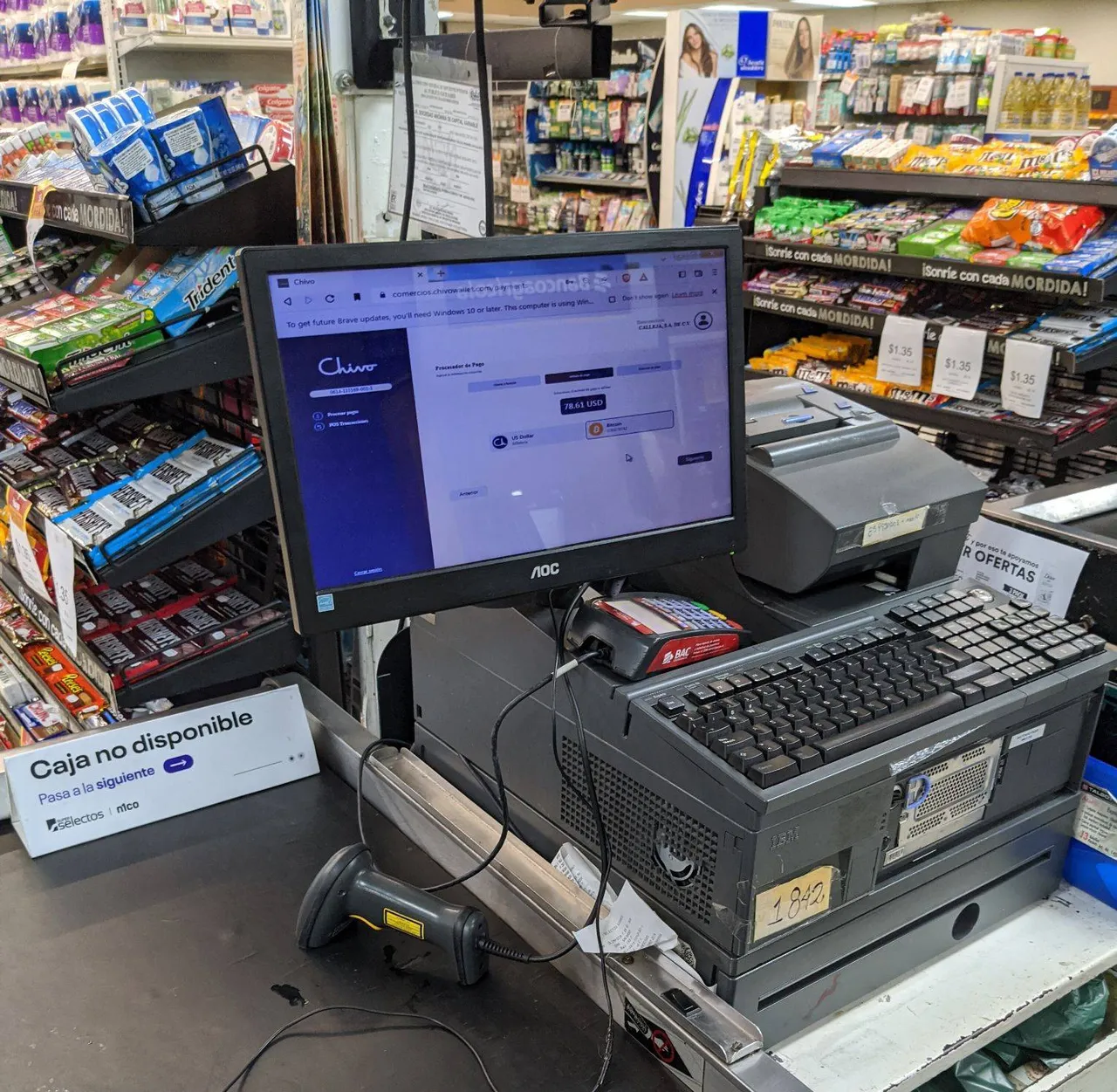
When I asked to pay with Bitcon, the cashier minimized the register software and opened up the Brave browser to launch the Chivo app. She then asked if I was going to pay with digital dollars or Bitcoin.
After selecting Bitcoin there are two options, on-chain Bitcoin or lightning Bitcoin. I asked her to switch to lightning, but she wasn't sure if she was allowed to, so she went to get help.
Her co-worker came by who said the lightning option isn't working, but I urged her to try just one more time. This time the QR code appeared and I was able to scan it with my lightning wallet. The payment went through after a moment, and the cashier was able to print out the receipt.
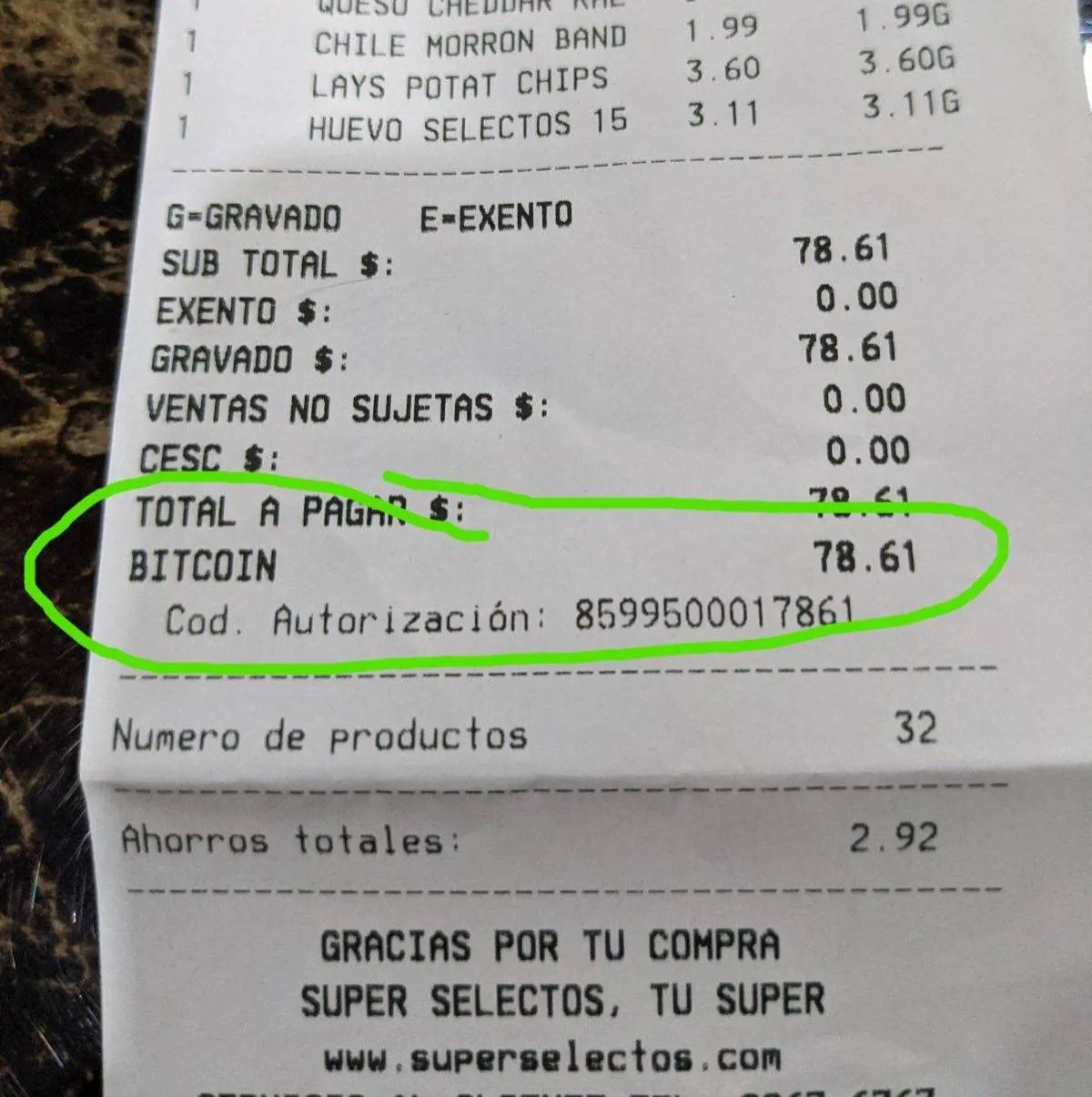
Takeaways
The Bitcoin payment option is still available at many locations in San Salvador, however it would seem that not many customers are using it, and therefore the employees don't get much experience accepting it.
When a customer does wish to pay with "Bitcoin" the employee has to determine if that means digital USD with Chivo or actual Bitcoin, possibly with another third-party wallet.
The fact that Bitcoin has both on-chain and lightning payments only adds to the confusion. As a tech person, you may want to explain the difference between the two, but store employees just want the payment method to work.
Paying with Bitcoin can be an anxiety-inducing experience for both the employee and customer. Sometimes the employee isn't sure if they're only allowed to accept digital USD, or if Bitcoin and lightning payments are also acceptable.
I have also noticed inconsistencies where some employees will allow you to pay with Bitcoin, or lightning, and then other others will tell you it's not possible. Therefore, it's still necessary to carry cash as a backup payment option.
Despite these challenges, El Salvador is better prepared than most countries for the world of decentralized finance that's at our doorstep. I think we'll have to wait for hyperinflation of the dollar before both customers and businesses are compelled to transact with Bitcoin (and other cryptocurrencies).
What do you think El Salvador could do to improve the Bitcoin payment experience?